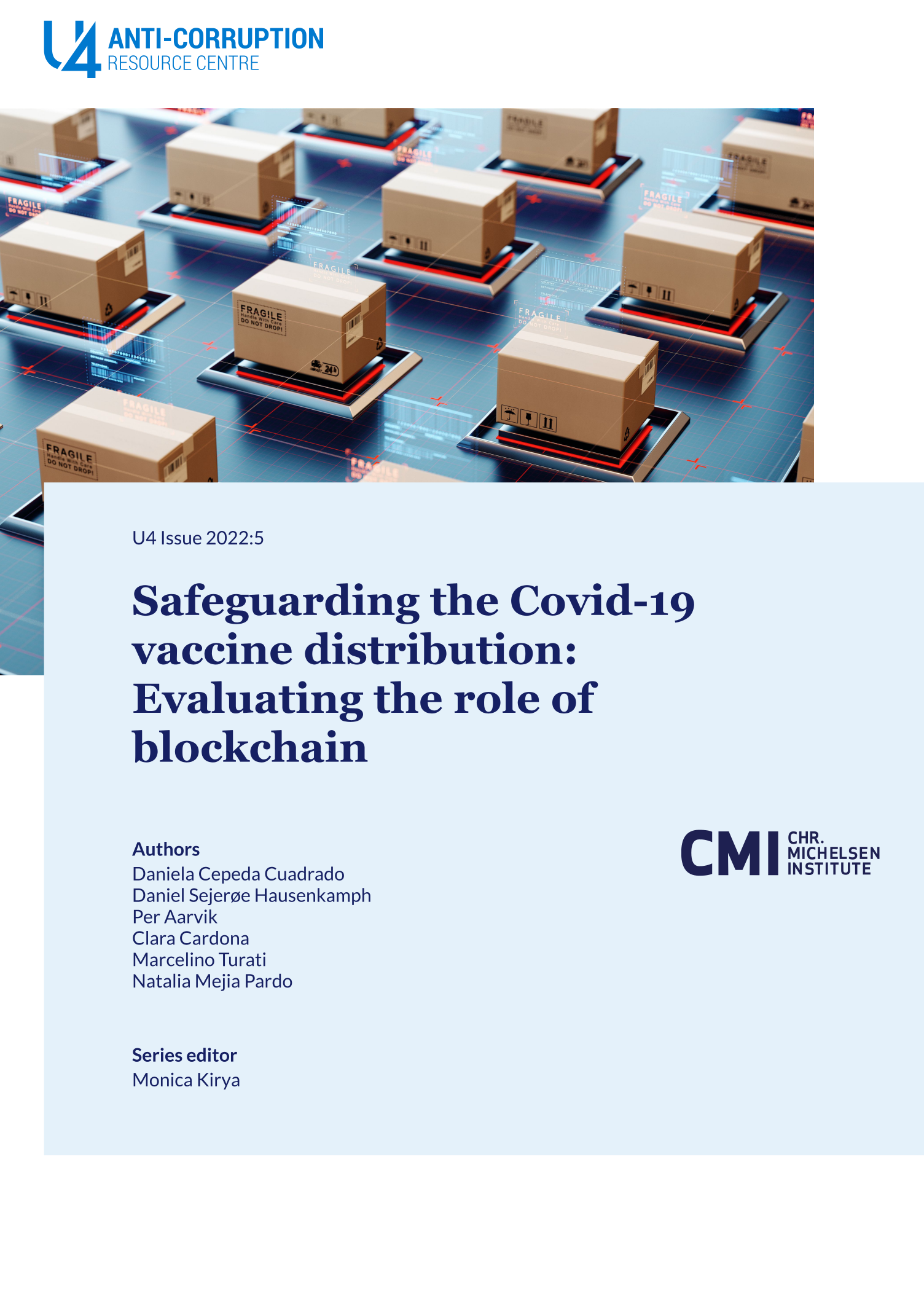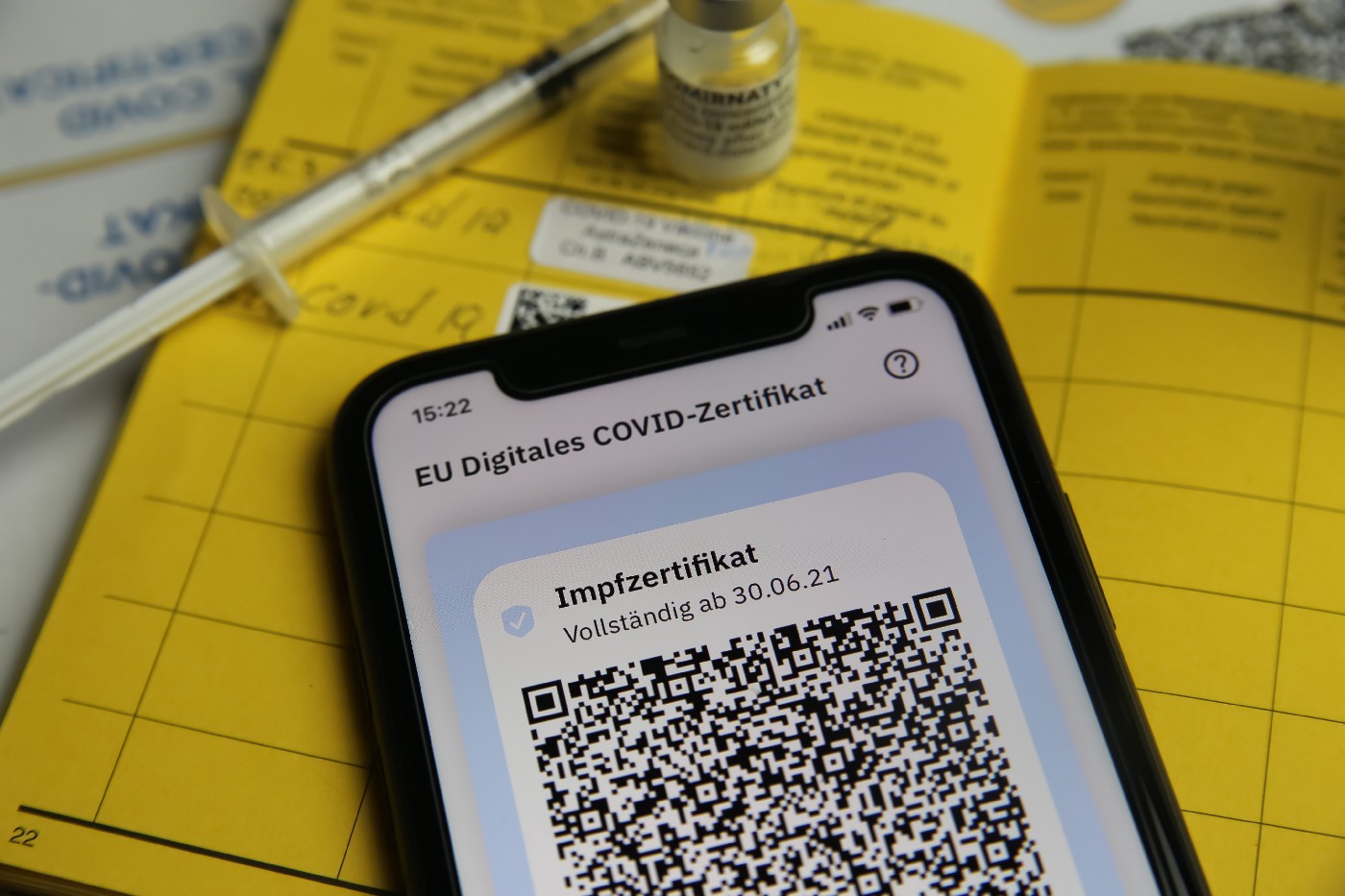Main points
- Covid-19 vaccine supply chains are exposed to corruption, theft, and falsification of vaccines and vaccination certificates. This can fuel public distrust and limit coverage.
- ‘Blockchain’ is a distributed ledger technology which is often promoted as having the potential to reduce corruption risks and deficiencies in supply chain management.
- Blockchain’s theoretical potential runs far ahead of its real-world use. Although only a few pilots are underway, there is momentum and interest in using blockchain to help address leakages, build trust, and secure an equitable distribution of vaccines.
- The reality is that the necessary conditions for blockchain to be effective are likely to be in places where corruption risks in supply chains are already low. The integrity of medical supply chains depends on factors such as political stability, collaboration among relevant interest groups, responsive legal frameworks, and technological capacity. These are also the conditions in which blockchain is most likely to be an effective tool.
- In fragile states, using blockchain can be challenging and more empirical research is required.
- International organisations, including aid donors, may consider the use of blockchain for supply chain management after evaluating the costs versus the benefits – as well as understanding how different designs will affect its performance in disparate settings.
- Funders and health organisations should invest in learning and training to understand how blockchain could contribute to reducing corruption in the health sector. It is also important to recognise the likely time scale, costs of projects, the need for integration with existing systems, and critical steps required for pilots, evaluation, and roll-out.



